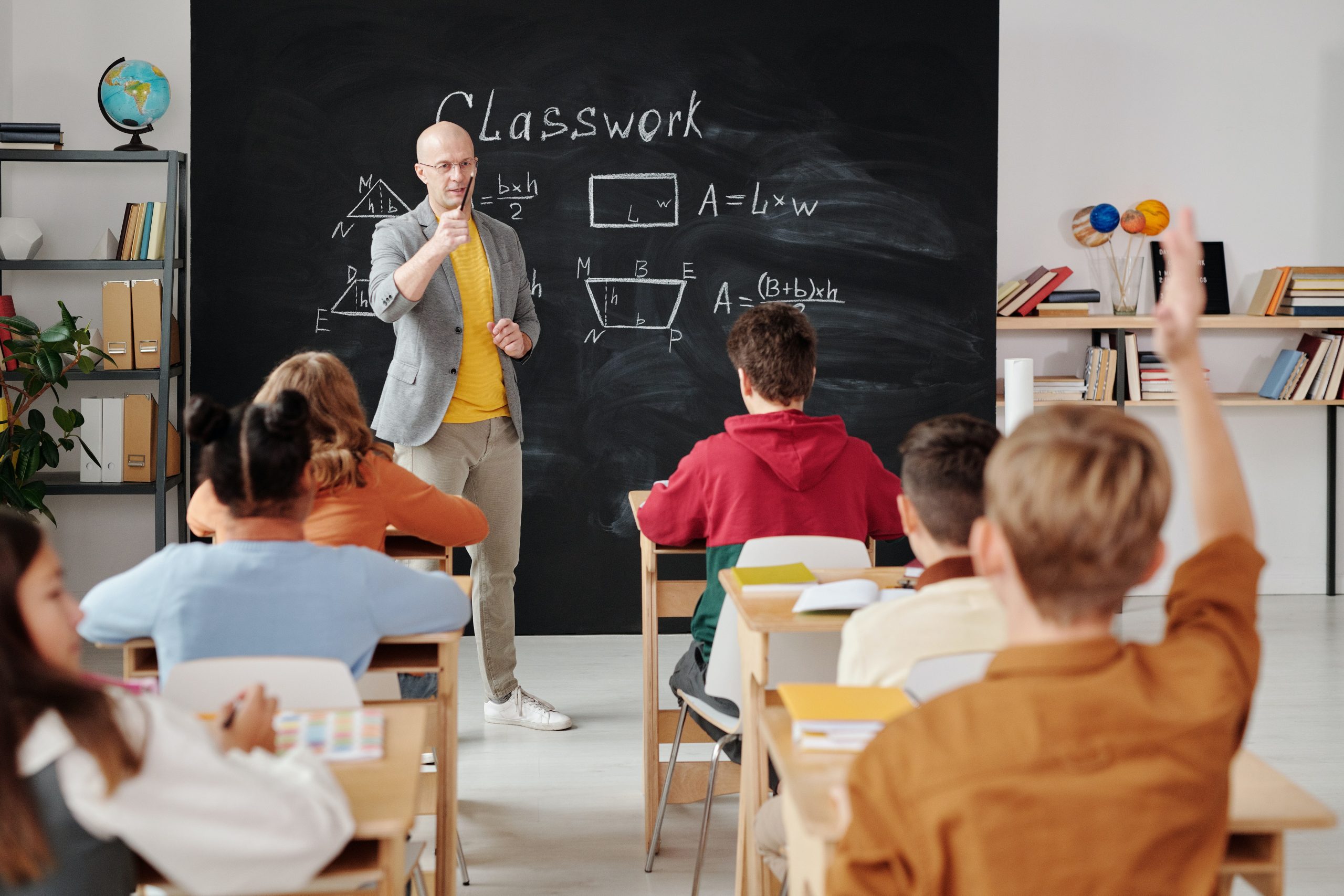Which is better? Online learning or In-Class learning?
One of the most famous quotes of the revered Nelson Mandela is about education:
“Education is the most powerful weapon which you can use to change the world.”
I believe one who has the desire to learn, can learn anything, anywhere in most instances except when hands-on skills are required to practice in order to get proficient in a subject. E.g., surgical skills.
In this era of technological advancement, we have the good fortune of learning in school or in the comfort of our own homes and have the convenience of choosing the time to study. How fortunate are we that we have this option available now!
In ancient India, the students used to live in their teacher’s home (Gurukul) to attain knowledge. Besides studying, they had to fulfill other duties and chores of a household like cleaning, washing, fetching water from a well or a river or a lake, gardening, brooming, looking after the cows and horses, as and when needed. The Guru’s wife would cook for all, and the couple would treat the students like their own children but also discipline them. The students learned social skills and made lifetime friends irrespective of their financial status.
This is comparable to the boarding schools of our time except that they may not have to do all those chores mentioned above. Here also the children learn to be independent from an early age.
In this article, we are not referring to the education system of a boarding school but Online learning vs. In-Class learning. They are both available now and it is important to know their main pros and cons. We got to know more about Online learning throughout the world during the Covid 19 pandemic.
Online learning gives the convenience of time and place for learning, in addition to being less expensive. It helps save commute time, boarding, and lodging costs if done comfortably at home. It allows one to stay with the family. It is especially easier for people who want to take care of their children or older parents, or spouses and want to learn during their free time.
Online learning opens new possibilities for working professionals to improve their skills by participating in the online webinars and classes, for certifications and recertifications, and improving job opportunities. These are sometimes offered by the world’s best teachers from very reputable universities and institutions where in-person admissions may be limited or more expensive.
Online learning is nearly as good as In-Class learning for adults when the classes are interactive. Pre-recorded lectures usually save time and effort for the teachers too and the teaching can be globally standardized. With pre-recorded lectures, if there is repeated accessibility, even average or below-average students can deepen their understanding and knowledge base.
Online learning may not be the best for very young children who are not able to study on their own. It is frequently hard on the parents as they usually need to get more involved. Parents lose their free time to do their own work and sometimes they may have to give up their jobs as was recently discovered during the Covid 19 pandemic.
Online learning can be improved if the teachers are able to see the facial expressions of the students to throw more light on difficult topics and subjects and help the timid students who would otherwise be shy to ask the questions for clarification. “Breakout rooms” are now available and helpful in Online learning classes which allow learning from the interactions amongst the students.
Learning requires self-discipline and self-motivation in a student which is much more needed for Online-learning.
Young children do better when they are allowed to learn in a group. In-Class learning in school is also a social activity for children. They get to interact with other children of their age and get the opportunity to do group activities usually in a bigger space. They make friends, talk, laugh, fight, reconcile and thus learn the social skills which are of utmost importance in one’s overall growth.
When In-Class learning is done, while staying at parents’ home, there is cost-saving, and parents and children both feel supported and are more likely to emotionally stay connected with the family. A lot of parents feel that when their children leave their homes, to study at a “tender” age (the age when not mature enough to decide between the right and the wrong choices), their family values and culture are often lost. The longer exposure time of children to their parents gives them a better opportunity to understand their family values and culture if the parents do not object to their staying home during the undergraduate years or until they mature.
Many parents feel that most children feel the “peer pressure” to “fit into the crowd”. Peer influence is the common breeding ground of addictions like drugs, smoking, and alcohol. Based on the company they allow; many innocent kids can get led into such bad habits that can destroy their lives. The family ties frequently get weak, and parents feel a “Big” loss.
It is important to be able to “fit into the world” but it is very important to know how to handle or manage most situations, know basic survival skills, adjusting at home, and with the family while being on the right path.
Some schools have a culture of “character building”. In-Class learning is the best here. Most of us in India studied in the same school from kindergarten to the final year of High school. This helped us make long-term friends and family relations. Friends often saved each other from getting into the bad companies and were also close enough to the friends’ parents to be able to share concerns if needed. It became like an extension of one’s own family.
Schools which are academically ranked high, are better known for their In-Class learning. Here you also get to “pick the brains” of their teachers and discuss out subjects and queries with the other high achiever students which is intellectually very stimulating.
Learning Online from the internet can also be dangerous. Most doctors must have had some patients getting information from the internet (often Google) before their visit with their doctor. They often adamantly come up with their own interpretations of their diseases and treatment options. I have had to tell some of them sarcastically at times that the “less bright students” have to go to medical schools and the rest can learn from “Dr. Google”. It is necessary to understand that the depth of knowledge does not come from reading a few articles online.
In both types of learning, a student should have good habits and qualities like being disciplined, staying organized, staying focused, being self-motivated, being curious, eager, and being analytical, to name a few.
In the Indian mythological story of Mahabharat, Eklavya, learned archery initially by staying hidden and seeing his Guru teach other students and then did a self-study program for many years to become an excellent archer of that time. He was dedicated to his learning.
Not everyone has the luxury of sitting in a quiet room to study. The one who has the desire to learn will find every opportunity to learn. It is up to us to decide what kind of discipline we as students need to develop. One of my long-term friend’s father became a chartered accountant (CPA) studying under streetlights in the late 1940s during India’s freedom fighting period.
Education and support for education are considered very important in India. Indian parents pay a lot more attention to their children getting well educated despite their financial situations. Children usually do not have to focus on earning but to focus on studying to achieve a degree. With the availability of Online learning, families who have financial constraints, can now work, achieve higher education, and support themselves as well as their families.
To summarize, I believe, Online learning and In-Class learning are both important. Based on the circumstances and the students’ learning ability, one should decide which one is better for an individual at that time.
A lecturer in a South African University wrote an expressive message to his students at the doctorate, masters and bachelors’ level and placed it at the entrance of the college. He wrote,
“Collapsing any Nation does not require use of Atomic bombs or the use of Long-range missiles.
But it requires lowering the quality of Education and allowing cheating in the exams by the students.
The patient dies in the hands of the doctor who passed his exams through cheating.
And the buildings collapse in the hands of an engineer who passed his exams through cheating.
And the money is lost in the hands of an accountant who passed his exams through cheating.
And humanity dies in the hands of a religious scholar who passed his exams through cheating.
And justice is lost in the hands of a judge who passed his exams through cheating.
And ignorance is rampant in the minds of children who are under the care of a teacher who passed exams through cheating.The collapse of education is the collapse of the Nation”
So, the take-home message is that it does not matter how you learn but educate yourself.
Dr. Darshana Kadakia
July 7, 2021









Leave A Comment